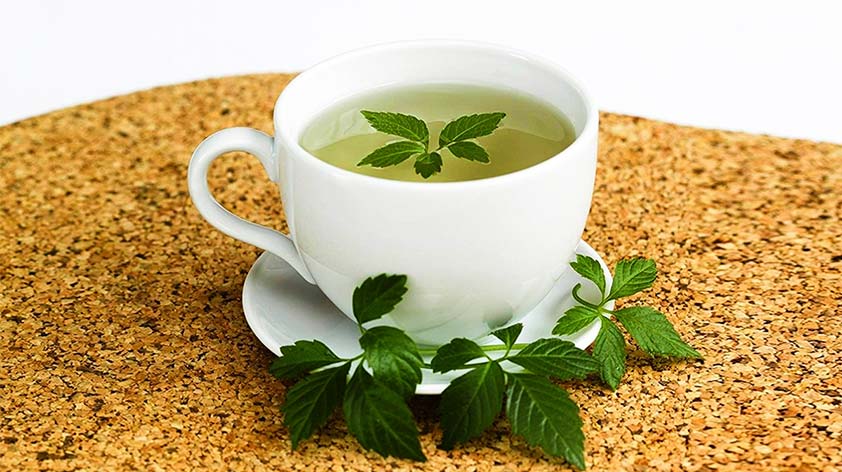
Gynostemma (aka Jiaogulan) is originally from South-East Asia, and has many names, such as: Five Leaf Ginseng, Poor Man’s Ginseng, Southern Ginseng, Miracle Grass, Fairy Herb, Sweet Tea Vine, Gospel Herb, Immortality Herb, and others which suggests its potential. It has been used traditionally in Southern China and was integrated into Traditional Chinese Medicine (TCM) fairly recently. It’s also known as ‘ginseng on steroids’, as it contains many more saponins (naturally occuring chemical compounds contained in a wide range of seeds, vegetables and herbs) than ginseng does. Read on for these Top 5 Health Benefits of Gynostemma (Jiaogulan).
1. Encourages brain health (neuroprotective)
It has been shown in early studies that Gynostemma is effective in Parkison’s disease. It helps protect the brain cells from adverse effects due to low oxygen, low blood sugar, and more. In a laboratory setting, it also protected from Alzheimer’s-induced molecules.
2. Helpful against stress (adaptogenic)
Its saponins create an adaptogenic effect. It can boost immune cell production and enhance the central nervous system’s functions. It also regulates nitric oxide production, that protects nerve cells from damage. Gynostemma has a regulatory effect on the body.
3. Promotes heart health
By facilitating the release of nitric oxide by the blood vessels, it allows these to increase blood flow, which in turn reduces blood pressure diminishing the risk or atherosclerosis.
4. Helpful for diabetics
It appears that gynostemma is excellent when it comes to fighting diabetes, as it regulates blood sugar, boosts antioxidant activity and improves insulin sensitivity.
5. Optimises liver health
It helps protect liver cells from degeneration and is effective against fatty liver disease. Through protecting the liver, it also encourages your body’s natural detoxification system to work effectively.









